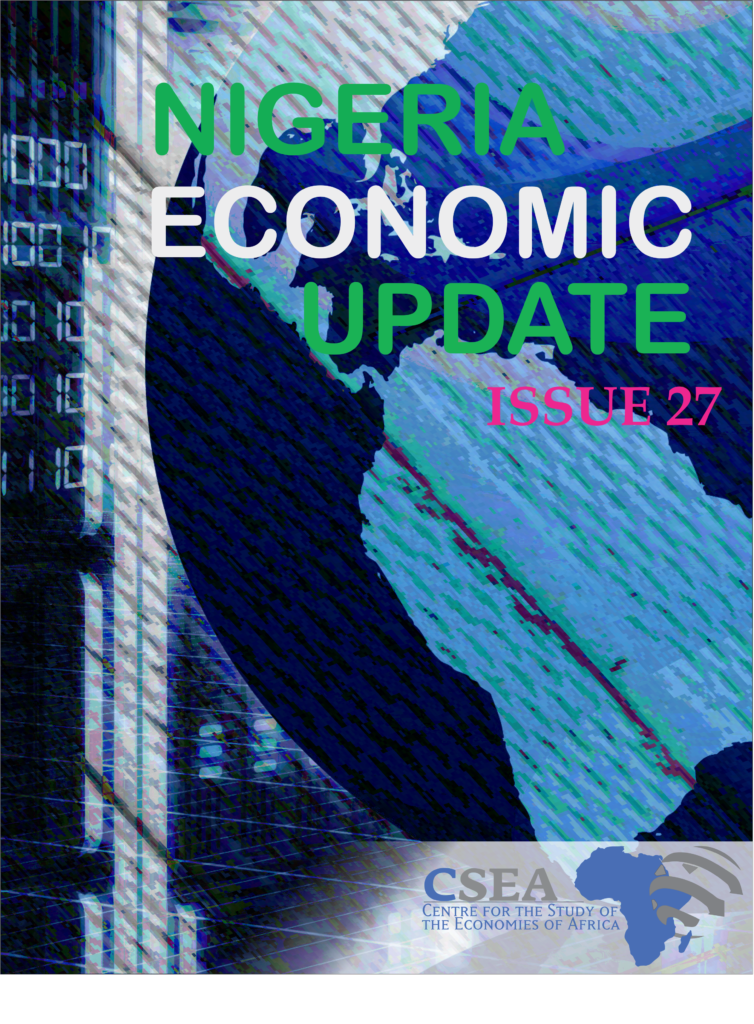Analysis of transactions at the stock market for the month ended May 2018 reveals an increase in the total transaction by a significant 50 percent. From N212.2 billion recorded in April to N318.3 billion in May 20181. Foreign transactions also increased by 57 percent to N193 billion and accounted for 61 percent of total transactions at the bourse. Similarly, domestic investment increased by 40 percent to N125 billion with a 49 percent share of total transactions. With a growing foreign investors’ participation, foreign portfolio investment outperformed domestic investment by 21.3 percent, and for the second consecutive month
Macroeconomic Report & Economic Updates

August 2, 2018
Nigeria Economic Update (Issue 27)
Analysis of transactions at the stock market for the month ended May 2018 reveals an increase in the total transaction by a significant 50 percent. From N212.2 billion recorded in April to N318.3 billion in May 20181. Foreign transactions also increased by 57 percent to N193 billion and accounted for 61 percent of total transactions […]
Read →
Related
Nigeria Economic Update (Issue 24)
The external reserves decreased week-on-week marginally by 0.2 percent from June 9, 2017 to June 16, 2017. The reserve declined from $30.27 billion to $30.21 billion. Given that crude oil revenue constitutes the most part of the reserve, the decline may be reflective of the week-on-week drop in global crude oil price (Crude oil price fell by approximately 2 percent to $47.377 per barrel as at June 16 2017). The ongoing forex intervention by the monetary authority also poses a challenge to foreign reserve conservation. Given the unimpressive performance of global oil prices in recent time, there is need to explore other areas with great potentials to generate foreign exchange earnings. Diversification of forex earnings remains the key to insulating foreign reserve against fluctuations in global commodity prices. The country can tap into solid minerals sector as alternative source of foreign exchange. Huge investment together with investor-friendly policies in solid minerals would make the sector attractive to investors.
